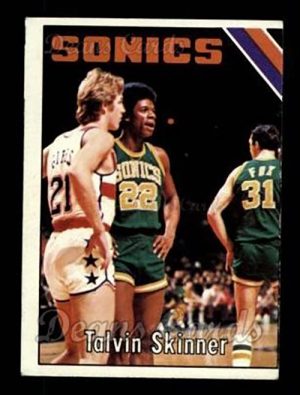
BERLIN- Local basketball legend and former NBA player Talvin Skinner was back in the area last week for a charity golf tournament at his alma mater, UMES, and talked of restoring the game for a new generation of kids in the Berlin area.
Skinner grew up playing pick-up basketball in the Berlin area with many players who went on to have distinguished college and even professional careers in the sport. He was in town last week after playing in an alumni golf tournament at UMES and spoke of his desire to restore basketball to its former glory in Berlin and provide an outlet for the next generation of young players from some of the trappings that often snare young people.
Skinner talked fondly of his days growing up and playing basketball in the Berlin area and the list of former great players from Berlin and across the Lower Shore is too great to enumerate. Many of the great local players from the 1960s and 1970s in and around Berlin went on to have outstanding careers including Skinner, who is a two-time member of the UMES Hall of Fame. Skinner was the key player on the UMES team that was the first from a historically black college or university invited to the National Invitational Tournament (NIT) in 1973-1974 when the tournament was bigger and more exclusive then the NCAA basketball tournament.
Skinner was later taken in the NBA draft by the Seattle Supersonics and played for a few years before retiring, He still lives in the Seattle area and is involved in youth basketball and a coach and referee. He returns to his native Berlin from time to time for events at UMES and to catch up with old friends with whom he grew up on the hardscrabble courts around town and beyond.
“We had so much talent around here,” he said. “You couldn’t walk around Berlin without finding a game. That was what we relied on to keep us from getting into other things. We used to battle out with some of the best players in the country around here in the pick-up games.”
Skinner grew up in Berlin at a time when schools were just beginning to become desegregated. When it came time for high school, Skinner went to Worcester High School, the all black school in Newark, while many of his friends in the area went to the recently desegregated Stephen Decatur High School. He recalls Worcester High always being second fiddle to the Decatur teams of that era including the state championship team in 1970 that included many of his young friends.
“We could never beat those guys,” he said. “At Worcester High School, we had a bunch of guys that lacked any real basketball fundamentals and then there was me. The coach would tell them ‘just give Talvin the ball,’ so it was often me against everybody else.”
Skinner last week fondly recalled growing up in Berlin and playing basketball almost every day from a very young age.
“I would watch the big guys play over at Flower Street and they would let me play because I owned the basketball,” he said. “That’s how I got to play. That got me on the court, but once they saw what I could do, I got to play all of the time.”
Skinner said during his return to his native Berlin last week he is working with others including Ocean City Recreation and Parks’ Al “Hondo” Handy on some ideas to restore youth basketball to its former glory in the local area.
“We’re trying to do something here to bring basketball back,” he said. “Every time I come home, I don’t see kids playing like we used to so many years ago. The kids here need that outlet, but it doesn’t seem to be here and we need to bring that back. That’s what we’re working on.”

